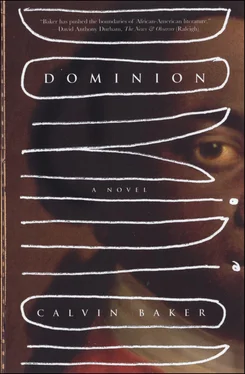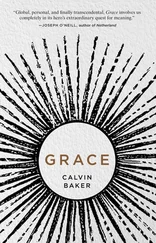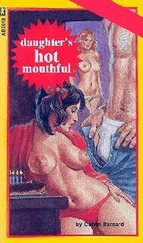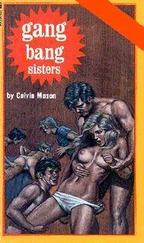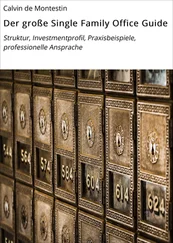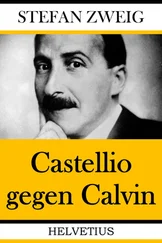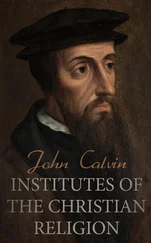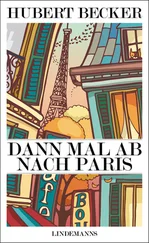For his part Purchase continued the business of growing up, now infant, now crawling, now toddler pulling the bread down from the table, until one of his parents would take him up. As he matured and began to express interests of his own, less tolerant of whatever Merian and Sanne put before him for amusement.
Wooden blocks he found satisfying, but only when he banged them together with all the force of his fat arms. Shapes made against the wall were dull, no matter what form or what noise was made to accompany them. Birds, however, he thought intriguing and would lie in waiting when they flew into the yard around the house, before pouncing, making them scatter briefly just beyond his reach.
Near his eighth birthday, when he was old enough to go about independently, Merian began to take him on the rounds of the farm, but the boy showed no interest in any creature save the chickens and the geese, who swam out on the lake in summer. After his father released him from his chores, he would go lie in the meadow where Ruth Potter was buried to stare at the falcons as they circled the sky in search of an evening meal.
When he returned home at night, Merian would invariably chide him for his laziness, warning what tribulations that particular path held.
To break him of bad habits and daydreaming, Merian tried to instill respect for laboring in the fields, taking him at his side and pointing out how each crop was grown and what they received for each thing there. At harvesttime, he took the boy to market with him, to learn from his bartering; he would produce then a crude tally sheet of the hours Purchase had helped him, and count out two coins, which he gave to him before they entered Content’s free house. “A man should always be paid for his work,” Merian said, giving the boy his monies. “There is no exception ever to be made to that.”
Purchase’s eyes lit when he received his pay, and he pocketed it, promising to save and add to it until he could use it for something worthy. Merian rubbed the boy’s shoulder and pulled up to the bar, where Content greeted them both.
“You’ll be bigger than your own father soon, if you don’t stop it,” he said, giving the kid a watery punch.
“Uncle Content, look,” Purchase said, showing off his wages.
“Yes, well, this one’s on the house,” Content told him, adding a penny to his bounty.
“Don’t go giving him charity,” Merian complained. “He’s already half spoiled.”
Purchase eyed the penny still on the bar, unwilling to let it go but certain Merian would make Content take it back if he didn’t do something clever. “I’ll sweep for it,” he volunteered, thinking what useful task he could perform.
“You can’t go hiring yourself out,” Merian said. “We need you at Stonehouses.” When he went and got the broom and began sweeping from the front of the store, though, Merian was proud to see the boy busy with honest work.
As the adults talked at the bar, complaining of the harvest and the way the outpost had grown beyond all recognition, Purchase worked diligently moving the dust around the ankles of the drinkers and other guests of the inn, until he had amassed a respectable pile of dirt at the back of the store. As he swept this into the alley, finishing with his work, he heard a man calling to him.
“Ever seen a baby falcon?” he asked, opening his coat to reveal a blind hatchling.
The creature was still covered in down, but as he stared at it in amazement, Purchase thought he saw the rippled under muscles of flight and capture.
“Where did it come from?”
“He fell from the nest,” the stranger said. “But for a shilling he’ll make you a right hunter.”
“I don’t have a shilling,” Purchase complained, going into his pocket to retrieve his wages. “All I have is this much.”
“Well, I suppose I can make you a deal this once,” the man said, lifting the coins before Purchase had even finished the sentence and bestowing the bird on the boy with a courtly motion before disappearing down the narrow alley.
Purchase held the bird in his hands, trembling from palm to sole as he ran back into the bar to show his father what he had acquired.
“You did what?” was all Merian said, hanging his head in dismay. “Look, Content, my boy here has bartered a whole season’s labor for a sickly vulture.”
“It’s a falcon,” Purchase argued. “That’s what the man who sold it to me said.”
“What man was that, son?” Content asked, looking at the poor miserable bird.
Purchase looked around and admitted the seller had already left. “He was sitting right there.” He pointed to the stool where the bird vendor had been sitting as he swept.
Content looked at him. “No one ever sits at the stool,” he said. “It’s just there to block access.”
Still, the boy swore the man had sat just where he said, and also that the bird he held was a falcon.
“I would never tell you other than the truth,” his father told him, before deriding the bird as “carrion vulture,” and “rotten buzzard.” Purchase knew, though, it was a raptor of prey, and he need only wait for it to fly.
First he held it in his hands and gave it small tosses that he hoped might make it lift off, but which his mother claimed only frightened the animal. “It is a wonder he eats,” she told him. “Anything that young away from its mother should be rightfully dead.” When she saw the anger in his eyes, though, she desisted and told him how the great brick oven in the kitchen came to be built over many years.
He did not want to take many years, though, and installed the hatchling falcon among the chickens, hoping he might learn from their efforts of remembered flight, or else that the instinct of the hunt would seize it and he would turn on the weaker animals to devour them.
To his surprise, one day while they were in the chicken coop, his falcon did find wing, jumping a few wide feet when a chick ventured too near. From these flichtering beginnings he soon took the entire room with a few easy beats of his wings.
At dinner, Purchase was excited by the new development. “Well, what are you going to do when you take him from the coop?” Merian asked. When Purchase inquired what he meant, he was told that the bird could no longer stay in the pen, or it would eat the chickens, and that it would not ever return once it had gone free.
“It will,” Purchase argued, looking to his mother for support. At night, though, he was seized by the fear that he would lose his bird and decided to keep it in the chicken pen forever.
He was stubborn about it, but his father more so, and he left the house one morning to find the bird tied to a post in the yard. “Now untie it,” Merian commanded.
Purchase did as he was told and walked over to his bird, noticing that it did not look like the falcons that he had seen over the pasture, but neither was it a vulture. He undid the hitch in the twine and smoothed the bird’s feathers.
The animal released a low thrill of approval, then climbed onto Purchase’s shoulder and down his arm. The boy looked at his pet in this pose and his heart beat with pleasure, because it was so like a true raptor responding to its master. His joy, however, was short-lived when the bird lifted off his arm, with a motion that generated a deep pressure on his flesh, as it leaped into a tree.
The boy called, and the animal would not come, but it also did not go off on its own. It stayed perched there, receiving table scraps until the first of spring. He thought it might stay on indefinitely, but when he went to feed it one day it had disappeared.
Merian tried to explain to him how everything separated out from its source eventually but also had to stay near to it. That’s what the bird was doing, he said. But to his son the words sounded victorious, and he searched the sky for his bird, until far off he saw a speck high up over the rolling hills. It was his, and he knew it would return. His father looked at the boy and said nothing. His mother came to him in the yard to offer her sympathy, but he was getting too old in years to accept her comfort so easily.
Читать дальше
